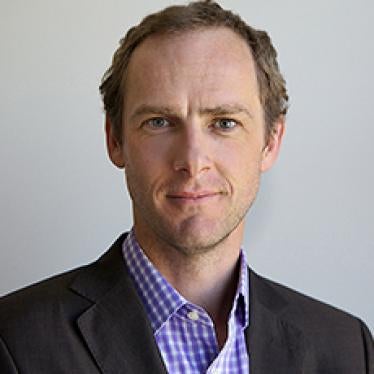Former US President Bill Clinton’s failure to act to prevent the genocide in Rwanda in 1994 continues to plague the conscience of many American policy makers.
Perhaps acknowledging this shortcoming, President Barack Obama declared in an address at the US Holocaust Memorial Museum that “preventing mass atrocities and genocide is a core national security interest and a core moral responsibility of the United States.”
This moral responsibility, however, is not America’s alone. African nations need to play a more active role to protect civilians at grave risk.
The crisis in the Central African Republic is a good example. The situation is different from Rwanda’s in 1994, but like Rwanda, it has the potential to deteriorate rapidly and claim many lives.
Rwanda is in a good position to press publicly for strong action, though: It has both the legitimacy to do so, and the ability to make its voice heard as a member of the United Nations Security Council.
I was in CAR several times this year, researching the crisis for Human Rights Watch. Since the Seleka rebel coalition overthrew François Bozizé’s government on March 24, the country has been rapidly descending into anarchy. The Seleka, predominantly Muslim, installed Michel Djotodia as interim president; elections are scheduled for early 2015. However, the Seleka’s rule has been marked by chaos and grave human rights abuses.
In April, dozens of people who told me how the Seleka had entered their neighbourhoods in Bangui, shooting women and children and looting homes and businesses. In May and June, I travelled outside the capital and saw how the Seleka had laid entire villages to waste.
In late August, threatened residents began to fight back. Local defence groups — commonly referred to as anti-balaka (“anti-machete”)— started making loose alliances with former soldiers from Bozizé’s national army.
In November, armed groups on both sides had escalated the violence to a level previously unseen in the country. The anti-balaka, equating all Muslims with the Seleka, are targeting civilians. The Seleka, in revenge, have intensified attacks on Christian villagers.
I met Christians who told me how Muslims they had grown up with had led revenge attacks by the Seleka against their own neighbours. This is the kind of talk that should make any Rwandan’s blood run cold. People “looking” like members of a certain group. Neighbours facilitating the killing of neighbours.
The situation in CAR has worsened in the past two weeks: At least 500 people were killed in Bangui in fresh fighting in early December. Several hundred others were killed in the vicinity of Bossangoa, 300 kilometres to the north.
Human Rights Watch team on the ground has confirmed that armed groups have been killing people with machetes. These groups have destroyed mosques as well.
The African Union, with French support, has a peacekeeping force on the ground, risking their lives to protect civilians. One wonders how different Rwanda’s tragic history might have been had African peacekeepers shown up in force in 1994. Our team in Bossangoa saw first-hand how AU peacekeepers from the Republic of Congo acted to protect both Christian and Muslim civilians, putting themselves at great risk.
CAR is a large country, roughly 24 times the size of Rwanda, and the AU has fewer than 4,000 peacekeepers there to provide security. The AU needs more peacekeepers and more support. Thankfully, the international wheels of action have started to move.
On December 12, Burundian troops started to fly to Bangui with US logistical support. A few days later, Obama said the US would send $60 million to support the AU force.
In addition to its vital assistance to the current AU peacekeeping force, Rwanda should support the growing international push for a well-equipped and resourced UN force to provide sufficient security to allow people to come out of the bush and restart their lives.
Rwanda could also encourage mediation and reconciliation initiatives between Christians and Muslims.
Through its seat on the UN Security Council, Rwanda supported the creation of a commission of inquiry to investigate rampant abuses and report back to the Security Council in six months. This is a positive and significant step, but more is needed.
Rwanda’s recent past, as well as its experience in African peacekeeping missions, puts the country in a unique position to keep up the pressure on other UN Security Council members. If some countries drag their feet, Rwanda should show the necessary leadership or the Central African Republic’s inter-communal violence could spiral out of control.
The UN crossed its arms in 1994 and left Rwanda to its fate. The same should not be allowed to happen in the Central African Republic. Rwanda has the floor. It has the power and legitimacy to make people listen.








